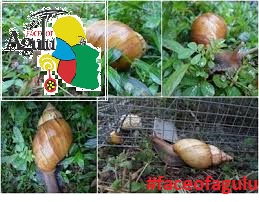Dairy Farming And Its Value Chain,


By Marlikberry,
In the recent time, it is a known fact that, there is a sharp decline in revenues accruing from oil sales, globally. Nigeria is no exception, and has been affected by this global endemic, as a member of the Organisation of Petroleum Exporting Countries (OPEC). Consequently, the negative trend has telling effects on monthly allocation accruing from the Federation Account to its two other tiers of government.
As a way to remain afloat, both the federal and state governments have devised other means of generating revenues for the day-to-day running of the government. The governments, at all levels, individuals and corporate organisations, have divested into agricultural business as a tested, viable and reliable sector to bridge the yawning gap in respect to the hitherto over-reliance on the oil proceeds for survival. On account of its dominant role, agriculture is a key player in poverty reduction and job creation.
Narrowing it down to Ogun State, the current administration has placed premium in the sector to guarantee food security, job creation and ultimately, as a source of generating revenues into the coffers of government and also shore up its Internal Generated Revenue (IGR) base.
The Agricultural Agenda of the present administration is geared towards giving support to private sector’s small holder farming and linkage to industrial process, job creation, agricultural industrialisation, food and nutrition aimed at ensuring food security and the resolve to connect all agencies and multinational development partners that have the mandate of agricultural and value chain actors.
It is heartwarming to note that this dairy and cattle value chain job and food security have formed parts of the Agricultural Road Map of the APC-led administration of Prince Dapo Abiodun when it assumed the mantle of leadership on May 29, 2019. No wonder early this year, the administration approved a special focus on food and nutrition with linkage of the people of the state to the nutritious food of animal and plants.
The intervention of the Central Bank of Nigeria (CBN) which is a partner in this initiative, is a main financial anchor for numerous linkage programmes in agriculture, with a record breaking of 7,000 linkages to credit and input, for cassava and rice in a short and restrictive COVID-19 season, without precedence. Indeed, it is a good development that the CBN and the state officials in the CBN/Ogun State Anchor Borrowers’ Programme (ABP) steering committee, in collaboration with Cattle Farmers Association in the state, have compiled list of interested youths in the state and farmers who have registered with the state, for Dairy and Cattle Value Chain job opportunities.
Without mincing words, it is a cheery news that the state government has opened up new opportunities for potential investors, resulting from the new framework for Responsible Intensive Land Investment In Agriculture (FRILIA) that was recently signed by His Excellency as an Executive Order. Thus, the rationale behind the gesture is geared towards providing supplementary free investment promotion advice and training to value chain actors, so that the state can continue to reap the benefits, including job creation, food security and sustainability of industries and the overall wellbeing of the people.
Worthy of note is, the signing of a Memorandum of Understanding (MoU), between the Ogun State Government and Fan Milk Plc, a French Company, on Thursday, January 28, 2021 that signalled the beginning of another milestone in the industrial revolution efforts in the state.
While lending credence to President Muhammadu Buhari’s Agenda of, “Grow What You Eat And Eat What You Grow”, the governor acknowledged the contribution of the FAN Milk Plc, dating back to five decades of operations and expressed hope that the signing of the MoU would help the state in its human capacity building and as well as job creation.
Agriculture is one of our key sectors. We have the land, the people and traditional farmers. Today, we have done so much to become number one in egg, poultry and cassava production in the country, and rice, kolanuts, cocoa and cotton production in the entire West African sub-region. Our fish production has become a model in the continent.
We see this opportunity, not just to further increase our contributions to food security, but particularly to allow us reduce the level of unemployment. We realised that Agriculture is the easiest and cheapest way to reduce unemployment.
In his own remarks, the France Ambassador, Pasquier, justified the singing of the papers which he said, would help in no small measure to reduce food importation and increase food security. He added that the company is poised to diversify, by using local raw materials for production.
The MoU is a step in corporate alliance, with one of the most successful (Ogun) states in the country. When fully operational, the partnership would help create job opportunities for the people of the state and also help develop the modern rearing method of local cows and production of dairy in the state.





